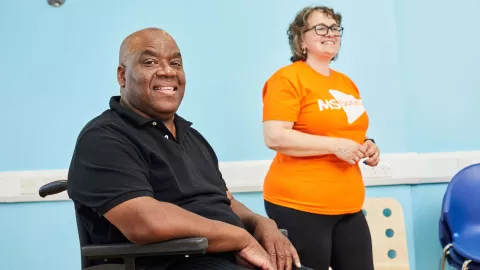
Our tone of voice
When we write, we remember we're talking to real people. And we share our community's stories in their own voices wherever we can. We use plain English and follow these five principles.
Our five principles
When we write, we remember we're talking to real people. And we share our community's stories in their own voices wherever we can. We use plain English and follow these five principles.
1. We speak to people’s emotional needs
We speak to people’s emotional needs as well as giving them information. We are clear who we’re writing for, what sort of mindset they’re in, and what we want them to think or feel as a result of hearing from us. We always stop and think about our audience and where they’re at.
2. We speak like a real person
This means we can do things our teachers told us were wrong – like starting a sentence with ‘But’ if it feels natural. And we go out of our way to be warm and welcoming to anyone who knocks on our virtual door. We put real people and their stories into our writing wherever we can.
3. We choose our words carefully
The words we write are increasingly read digitally on mobiles and tablets. Often they’re not read, but scanned. We have less space to say things, and people have less time to take them in. This means being clear on the most important point we need to make, and being brave on leaving stuff out. Clear and simple is the key – if an 11 year old can’t understand what we’re writing, we’ve gone wrong somewhere.
4. We need our words to be found
Which means – very simply – that the words we use in our writing need to reflect the search terms people put into Google. Think about how you’d Google something yourself – and use precisely those natural, common sense words when you write.
5. We help people face the future without fear
We allow our passion and hope to be heard in our voice. Avoid tentative language where possible – “could”, “might” and “maybe” make a piece of writing feel hesitant and weak. Instead say “can” and “will”. Most importantly, we end our point on an uplifting note: a positive message that gives people a sense of purpose, strength and – above all – hope.



